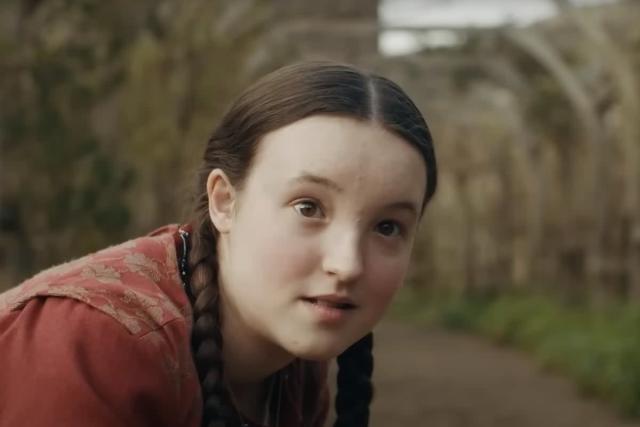The Good House
Posted on September 29, 2022 at 5:40 pm
B +| Lowest Recommended Age: | Mature High Schooler |
| MPAA Rating: | NA |
| Profanity: | Strong language |
| Alcohol/ Drugs: | Drinking and alcoholism, marijuana |
| Violence/ Scariness: | Reference to two suicides (off-screen), some scuffles, lost child |
| Diversity Issues: | Neurodivergent child |
| Date Released to Theaters: | September 30, 2022 |
| Date Released to DVD: | November 21, 2022 |

The good news about a small town is that everyone knows everything about everyone. That can be a source of comfort and help people feel grounded. The bad thing about a small town is that everyone knows everything about everyone. That can be a source of claustrophobia and make people feel trapped. The local psychiatrist, for example, is Peter (Rob Delaney). Hildy will always see him in part as the little boy she used to babysit for. Even if she does not, he will always think she does.
There is an increasing gulf between the way Hildy wants to be seen in the community, the way she is seen, and the way she is. We learn that her daughters and ex-husband organized an intervention because of her drinking, and she has been to rehab. And she is still drinking. A lot. She believes it is important for her to appear successful, so she drives a car she cannot afford. She is struggling and feeling the pressure from a former assistant who has become a competitor.
The trailer may suggest that the focus of the movie is the romance as Hildy connects with Frankie (Kevin Kline), a contractor she loved when they were teenagers. But it is really the story of Hildy coming to terms with the loss and fear she has pushed away and refused to acknowledge since she was a child. Often it was alcohol that she used to make reality less painful. This is a gorgeous role for the endlessly talented Weaver, who gives a layered, deeply lived-in performance, one of the best of the year. She shows us Hildy’s cool, pulled together, ABC (Always Be Closing), performative self, the one she shows to clients, potential clients (that means everyone), even her two daughters. Her wry humor at first looks like some self-awareness, but as it goes on, we see it is just another way to avoid seeing the truth. The same with the details she confides in us. At first they seem disarming and candid. But we learn more about what she is leaving out. And her chemistry with her “Dave” and “The Ice Storm” co-star Kline is genuine and touching.
There’s an engaging shagginess to the story that reveals its origins as a novel. Directors and co-screenwriters (with Thomas Bezucha) Maya Forbes and Wallace Wolodarsky leave in some of the messy details of the novel that most writers would smooth over in a movie adaptation, where there is a limited time so that every aspect has to push the story forward. This gives the film a sense of atmosphere and community that we can believe goes beyond the edges of the frame.
Parents should know that this film deals with alcoholism, depression, and suicide. A child is in peril. Characters use some strong language.
Family discussion: Why did Hildy tell Rebecca she could not get involved? Do you believe Hildy had special powers of perception?
If you like this, try: “Dave” and “Our Souls at Night” and, by these same screenwriters, the excellent autobiographical “Infinitely Polar Bear”









